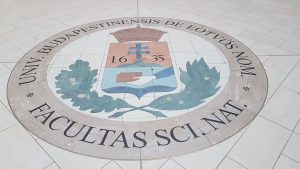I had a very exciting opportunity to visit Eotvas Lorand University in Budapest Hungary. I was asked to present on physics teacher education that I do here in Canada and on science outreach. Both topics are very important to me and it is always great to meet people who are interested to know what we are doing. This was also a very exciting opportunity as every visits gives you a chance to see how people at other universities and other countries do what we do here. It is always an opportunity to learn from others.
Budapest was certainly a very attractive opportunity for me. Teacher education in Hungary has a long history. This country of less than 10 million people has produced many famous physicists, writers, musicians and artists. They clearly value education and put a lot of efforts into teacher education. I had a chance to meet many interesting people (both faculty and students) and learned a little bit about how they educate future physics teachers. I also had an opportunity to visit a physics lab of Prof. Tamas Tel who showed me beautiful experiments on solitons. Prof. Tel is a theoretical physicist who studies fluid dynamics. But unlike many theoretical physicists, he also built a lab where he can also do experiments. For example, he showed me very elegant demonstrations showing how solitons (a self-reinforcing solitary wave) can propagate and how understanding this phenomenon can explain many atmospheric phenomena we see in nature.
As far as I understood, in Hungary, secondary physics teachers are educated in the Faculty of Science and they have much more experience with the didactic aspects of physics teaching as compared to our teacher education program. For example, they do physics labs where they have to learn how to perform many experiments from the secondary school curriculum. I also was very impressed by the mentoring that happens after they graduate from the university and become practicing teachers. Lastly, I met with very inspirational physics teachers who do a lot of extracurricular activities with their students and I could see how the University supports that. This was also something we can learn from.
This was a very exciting visit and I am very grateful to my Hungarian colleagues for their hospitality. I hope to be able to collaborate with them in the future.
My presentations:

